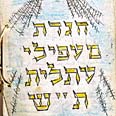
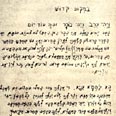
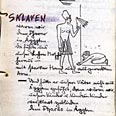
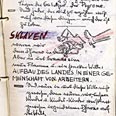
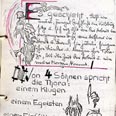
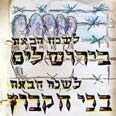
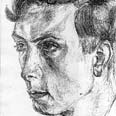
Passover 1940 – About six months after World War II broke out. The immigrants who escaped the claws of the Nazis on board the vessel Hilda were imprisoned in the detention camp built by the British in Atlith. The preparations for the Pesach seder were underway, and there was a need to prepare Haggadot.
Menachem (Rozental) Raviv and Roda Reilinger – later to become members of Kibbutz Hazorea – volunteered for the utmost important task. Menachem wrote the Haggadah and Roda made the illustrations. They both have since passed away, but their joint creation was preserved and can teach us a lot about the events of the time.
The following is the story of the seder, held exactly 70 years ago, as told by Menachem.
"We, the settlers who arrived on board Hilda were captured by British policing vessels near the Dardanelles straits in January 1940. We were taken to Haifa, and some 350 of us were transferred to a detention camp in Atlith. We were sentenced to a six-month prison sentence as punishment for illegally immigrating to Israel.
"Within our small group dubbed the Werkleute (craftsmen), many of the pioneer youth movement instructors from Czechoslovakia, Romania and Germany were left behind because there were not granted immigration permits by the British.
"The camp was organized fairly quickly, we had plenty of time on our hands…we arranged classes of all kinds, a choir conducted by Roda and mainly Hebrew lessons. Passover was nearing, and the thought of celebrating the seder along with other friends and our own Hagaddah came to mind…
"I started writing in German all the passages that drew parallels between our situation and the situation of the sons of Israel back then. I showed the script to Roda, and he was taken by the idea and promised to rewrite it with his fine handwriting and illustrate the Haggadah. In the meantime, I wrote the Hebrew version.
"Passover eve arrived, and after all the preparations we managed to create a real holiday atmosphere. Some 40 young members of the Shomer Hatzair and Werkleute, all dressed in white shirts, gathered around the decorated tables. We read from OUR Haggadah, parts were written in German while other parts in Hebrew. It was a very special experience because we were in the detention camp. I remember the astounded faces of the Arab and British soldiers who stood on the side bewildered…"
Below are selected pages of the Haggadah, written and illustrated by Roda, and the Hebrew version written by Menachem, based on the German text; some of the translated pages could not be found, and due to its length we will only showcase part of it.
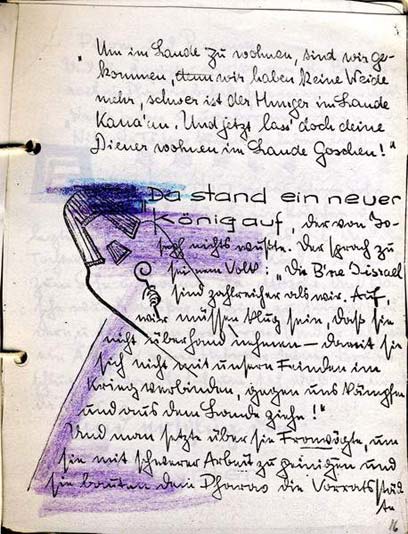
Then a new king, who did not know about Joseph, came to power in Egypt. 'Look,' he said to his people, 'The Israelites have become much too numerous for us. Come, we must deal shrewdly with them or they will become even more numerous and, if war breaks out, will join our enemies, fight against us and leave the country'
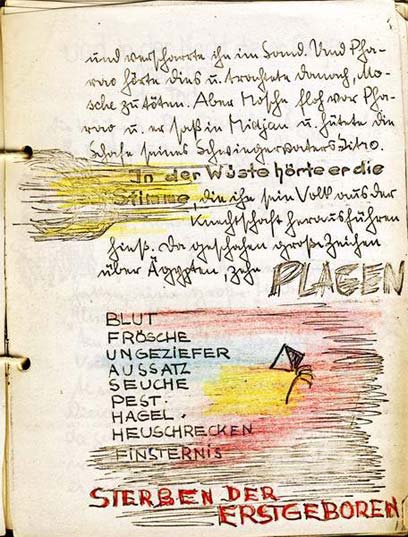
The ten Plagues of Egypt were Blood, Frogs, Gnat, Flies, Disease in Livestock, Boils, Hail, Locusts, Darkness, Death of firstborn
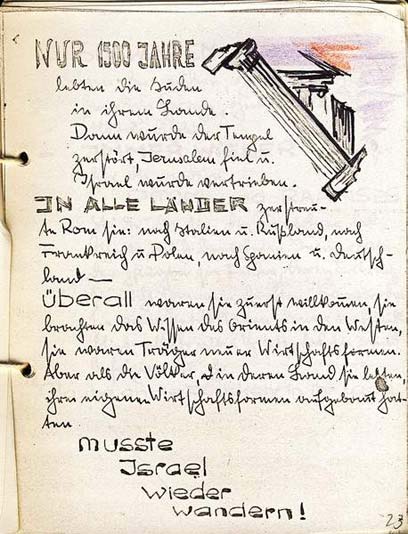
There were many hardships in the desert: Hunger, despair and lack of faith
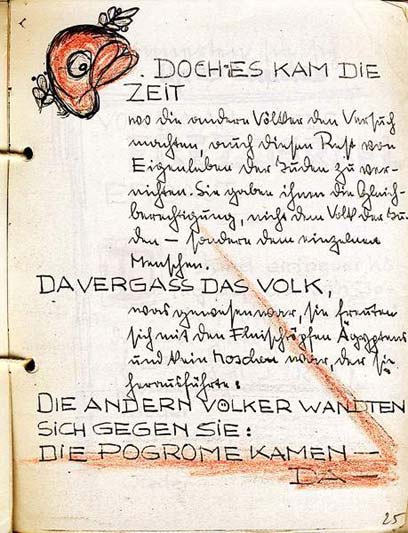
The Jews only lived in their land for one thousand five hundred years. The Temple was destroyed and Jerusalem conquered by enemies who expelled all its inhabitants
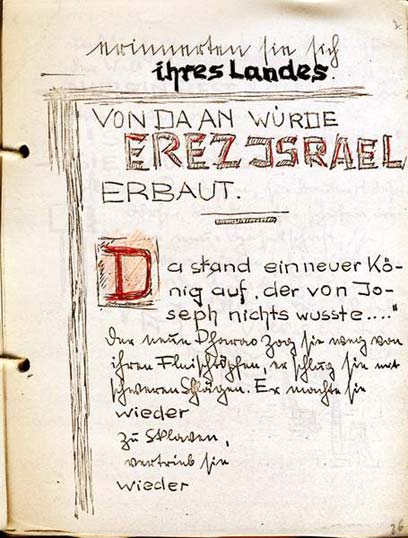
Build the Land of Israel, plant orchards, build houses in the villages and cities, create a new society and unite in the kibbutz
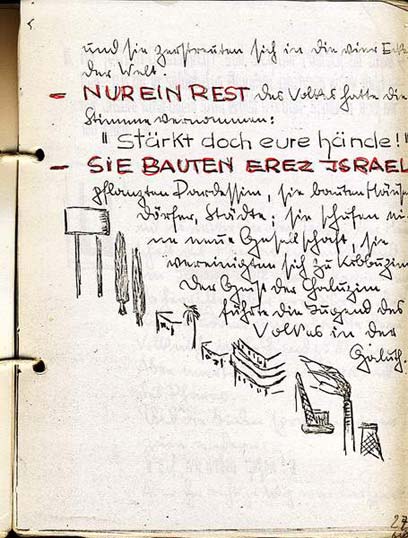
The pioneering spirit will guide the youth in the Diaspora
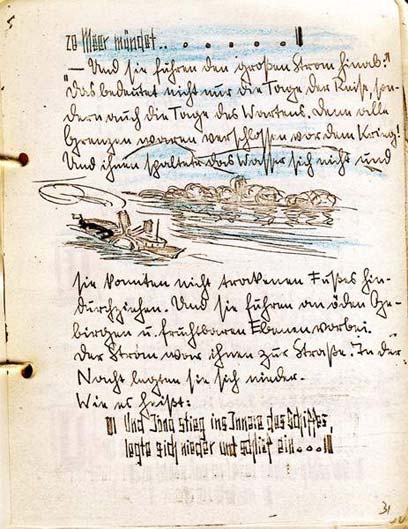
During Pharaoh's kingship of Germany, then ruled a red emperor over Israel who did not let the people back to their land. Pharaoh's strong arm was too harsh to tolerate, and the Jews said to each other let us go and settle the Land of Israel
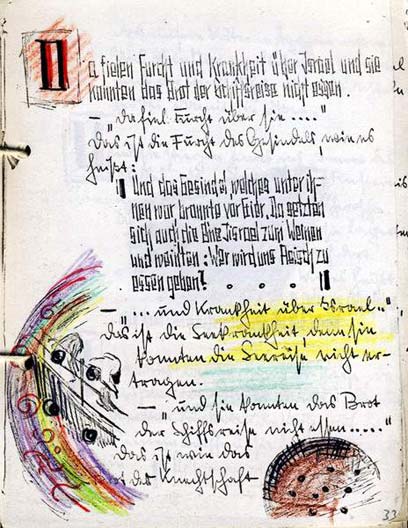
They were in need of a large vessel, but there was no such thing during wartime, and so they waited days and weeks until the winter came..
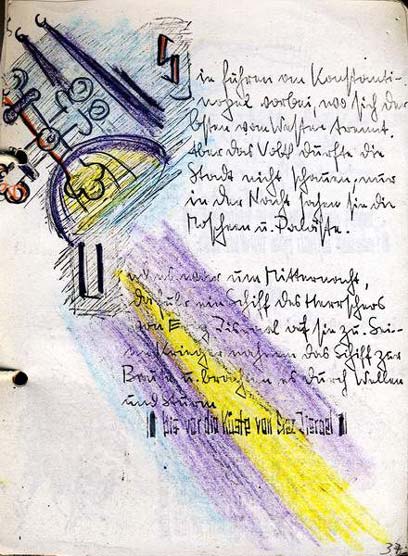
In the dead of night, a storm stirred the seas and almost destroyed the ship. The people of Israel were sleeping and unaware of what was happening
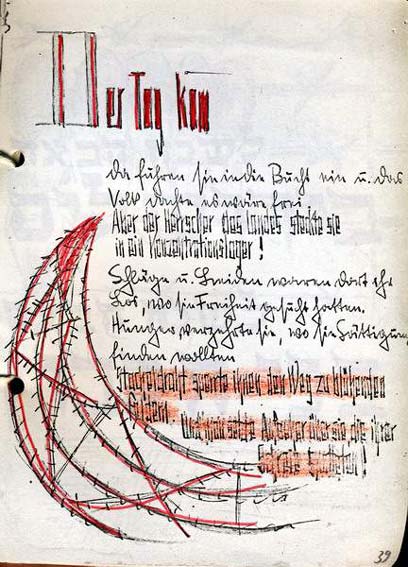
The sailors salvaged the ship with the little strength left in them
For all trips to the past – click here















